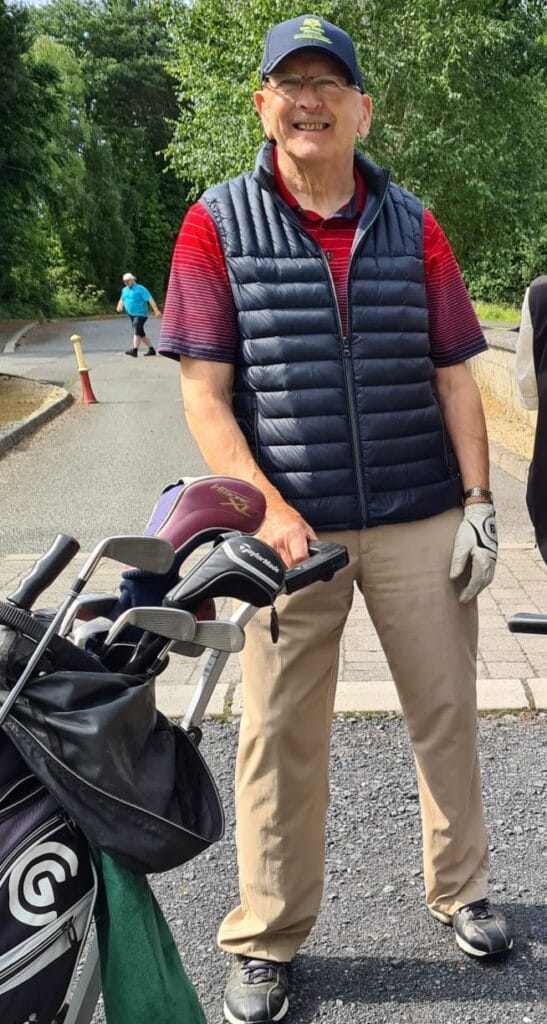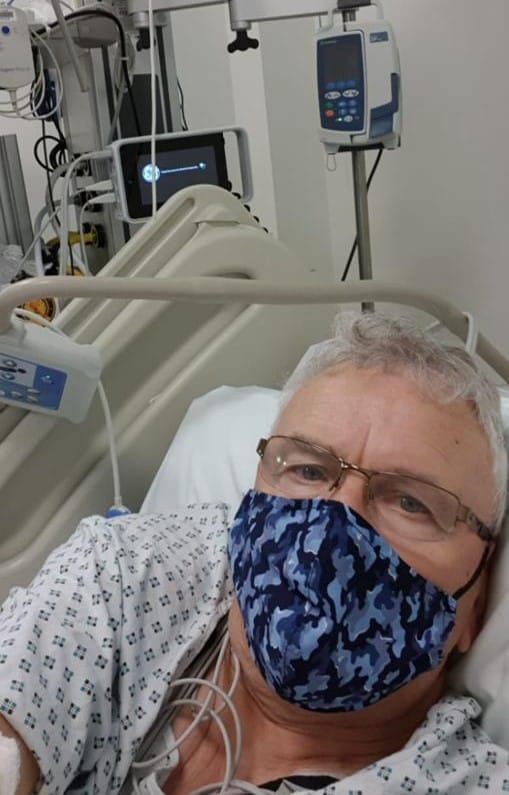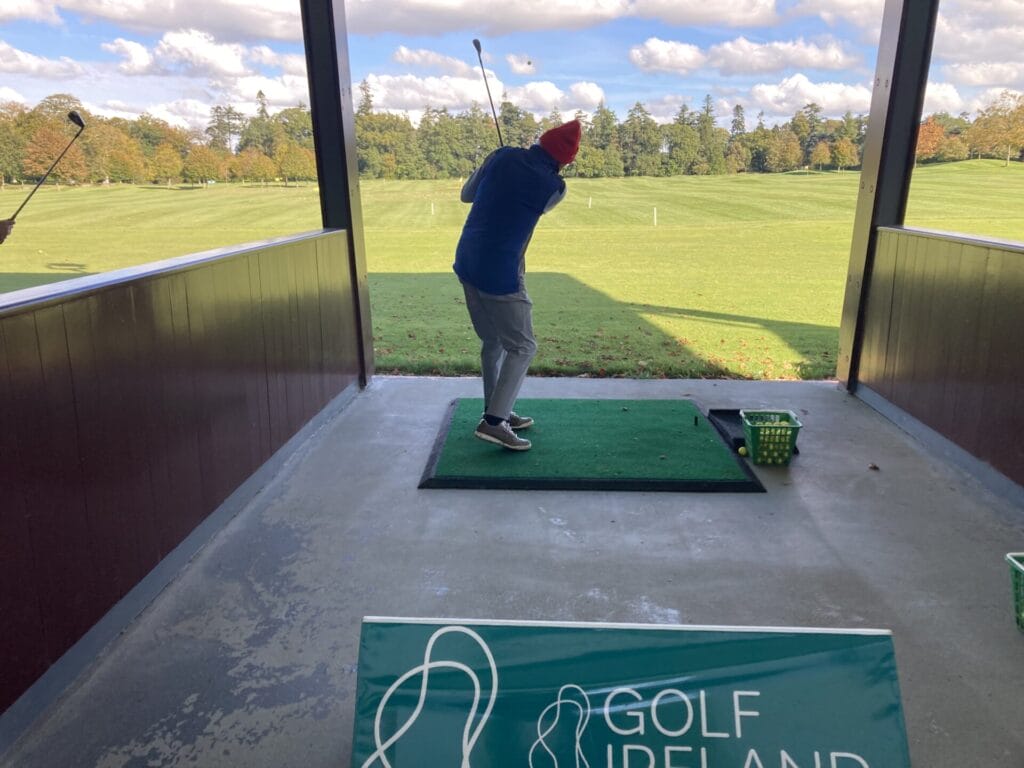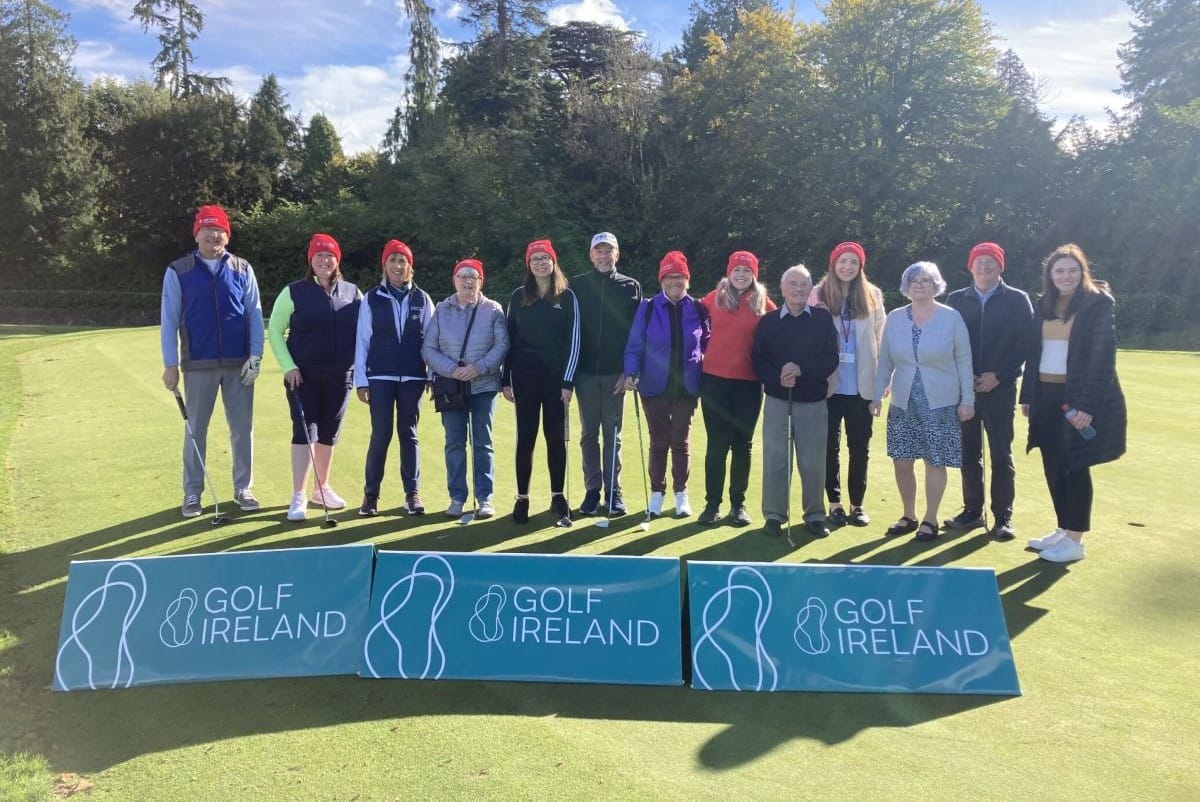A recent study undertaken by the University of East Finland found golf in retirement can make you mentally sharper and help stave off dementia.
After playing 18 holes the 25 volunteers, aged over 65, were able to solve quick thinking puzzles almost five seconds faster than before their round.
The results were believed to have been caused by both the exercise of walking the course and the strategic thinking behind the game.
Another study showed older adults had improved cardiovascular health after playing golf, and Peter McCabe is one of those feeling rejuvenated.
“I slowly got into golf through Par 3 golf really,” said McCabe.
“I wasn’t big into golf ever – some guys and women were playing two or three times a week, and golf was their life, I was never into it that way.”
The Sandyford native was nearly 40 when he first picked up the game, he had played football and squash for years but golf took precedence.
And over time it became a necessity for exercise and general health, after the 80-year-old suffered a heart attack and two minor strokes.
“I got into Par 3 and it was a good hobby to have,” said McCabe.
“Before I got my heart problem I thought I was in fairly good health. Was always careful about my diet generally, wasn’t a regular drinker, gave up smoking in my 20s when I had my appendix out and never smoked cigarettes since then.
“I had a fairly good lifestyle and then at the age of 74 I got a heart attack. I barely survived it, the paramedics and ambulance crew were great, kept me alive.
“I didn’t know where I was going obviously but I ended up in James’s Hospital which was brilliant. They put stents in immediately because I needed something.”

McCabe’s wife Laura died 17 years ago. They have four sons; Darryl, Malcolm, Odhran and Kevin, who are all married.
A former Director of Manpower and Safety at the Construction Industry Federation has 11 grandchildren now and he golfs twice a week, he knows how crucial that outlet is. And he inspired by his grandson Harry (12), who is a very promising junior at Dun Laoghaire Golf Club.
Peter was alone at home in April 2017 when he suffered his heart attack, it was just after breakfast and luckily his strong family network came to his rescue.
“My sister was living across the road. So I had family beside me. I managed to make my way to my sister’s house and she crushed up some tablets and knew what to do,” said McCabe.
“The ambulance paramedics were on the phone telling her what to do. It took them about 20 minutes to get to the house. I got to the hospital and got stents in. They cleared the arteries and there was no risk of further clotting at that time.
“I was transferred to Vincent’s for four or five days, recovered there and got into some physio sort of exercise to recover there. Then I was looking to see what else I would do to keep myself active.
“I knew the heart was damaged and I was told I had to be careful. They were monitoring my blood flows around my arteries, particularly my arteries around the heart and up to the brain.”
McCabe was seeing a cardiologist in the nearby Beacon Hospital on a regular basis and he began his recuperation before he was plunged into the mire all over again.
He had already received ‘a second yellow card’ as he refers to it, when he was on holiday in Palma, Majorca.
It was September 2019, just before the Covid pandemic when he felt a stiffness in his left arm and leg. McCabe was on a family holiday and he received treatment in the form of cortisone injections.
When he returned to Ireland there were more visits to the cardiologist, medication was updated and he changed blood thinners.
“It affects me holding clubs a little bit. My left leg is a bit numb down below the knee at times,” said McCabe.
“That is part of the stroke bit. It is not stopping me getting out and walking. I probably need the exercise.”
He had another minor stroke in September 2020, the latest health setback meant for more stents and as he linked up with the Irish Heart Foundation he found their stroke survivors group a source of enlightenment.
“They were great, we were doing some great physio and exercise but more importantly I was meeting other stroke survivors. I found that great and we were able to mix,” said McCabe.

Covid-19 put an end to those group sessions and they went online instead.
“It was very hard sitting in your own room to be as committed and then I wasn’t meeting the people which was 70 percent of the value of it,” said McCabe.
“It was very difficult to do it online but I did. I was following it once or twice a week for an hour and then they started back with the one in Mount Merrion. I am back at that again but it’s only once a month so I needed more than that.
“I said I need to go playing golf again but I knew I couldn’t play much.”
And the sport he picked up as a hobby almost 50 years ago has become the focal point of his exercise.
He eased himself back into golf through his local driving range but has progressed onto a stage where he can play nine holes twice a week.
Tomorrow Golf Ireland, in partnership with the Irish Heart Foundation, will hold their second ‘Get back into Golf’ event for individuals recovering from stroke at Golf Ireland HQ.
The idea is to provide individuals who played golf before their stroke with an opportunity to get back into it again, along with other people recovering from stroke who are interested in golf.
McCabe, who also suffers from polymyalgia rheumatica, is thrilled to get the opportunity to join up with the group again.
“All your shoulder muscles, you get muscle pains that you can hardly dress or have a shower. It was very debilitating, I had to go to a rheumatologist and get treatment for that,” said McCabe.
“The IHF and Golf Ireland ‘Get back into Golf’ initiative is excellent. I didn’t know what to expect first time because I was playing a bit of golf, I said was it something I would benefit much from but I did.
“Having the coaches there, they knew of people’s situations so they were able to give people coaching tailored to stroke survivors. And there some exercises and competitions built in, there was some participative stuff built into it.
“There was a few people from IHF and they were giving advice about how to warm up and how to get your shoulders or arms ready to be able to swing a golf club. Normally I wouldn’t think about that when I am going to play golf.
“I need to do that a bit more and do warm-ups, a bit more for ten minutes even. That was very good and I know from talking to some of the other people there that they were hoping that it would be on again and they would go there and meet. The little competition between the group is great.
“My aim now in life and golf is to be stress-free and minimise the strokes.”

























Leave a comment